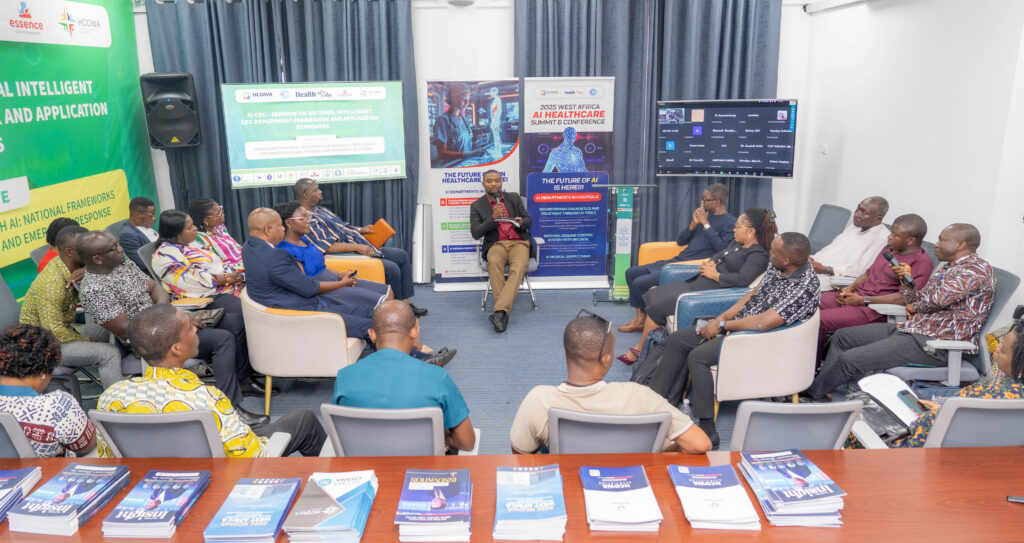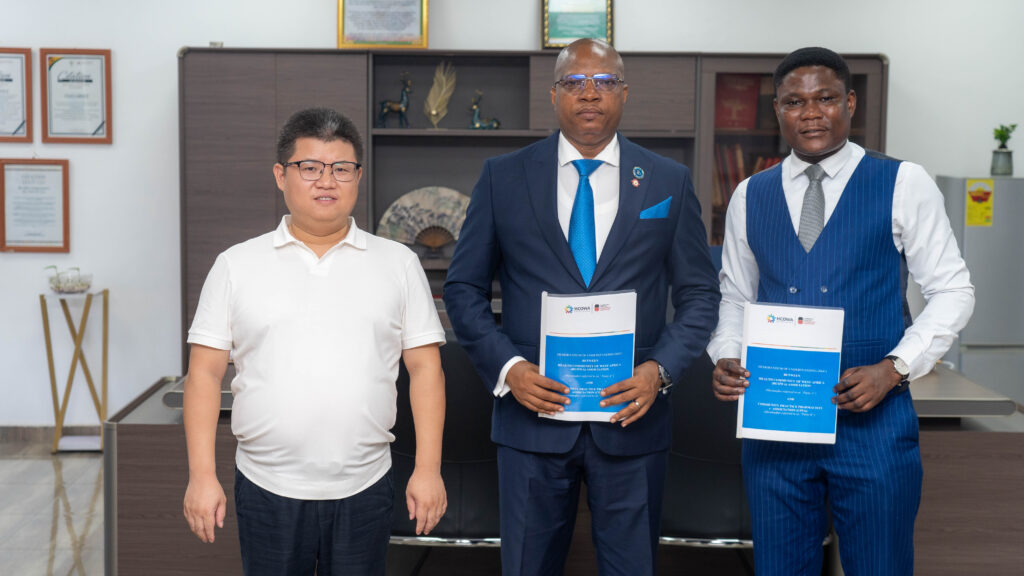The Health Community of West Africa Association (HCOWAA) convened its 6th international seminar on the National Intelligent CDC Deployment Framework and Application Standards, under the theme: “Transforming Public Health with AI: National Frameworks for Smarter Disease Control and Emergency Response.”
Held in Accra, the event brought together experts from healthcare, technology, academia and policy sectors to explore the role of Artificial Intelligence (AI) in enhancing public health systems, improving disease surveillance, and strengthening emergency response across Ghana and the West African sub-region.
The seminar addressed the increasing relevance of AI in national development and public health infrastructure. From outbreak prediction to healthcare delivery, AI presents an opportunity for nations to leap forward technologically if implemented responsibly.
Keynote Contributions and Thought Leadership
Mr. Mahama Seidu, Deputy Director for Research and Health Policy at the Ghana Health Service, delivered the keynote address, outlining five core pillars that research institutions must prioritize to support the integration of AI in public health surveillance:
- Development & Innovation: Designing sector-specific AI tools for public health, safety, and national development.
- Testing & Validation: Ensuring technologies are tested rigorously to avoid bias and ensure reliability.
- Ethical & Societal Safeguards: Addressing critical concerns around privacy, data protection, and civil rights.
- Policy Advocacy: Influencing data governance laws, public engagement, and responsible AI deployment.
- Collaboration: Promoting multi-sector partnerships to scale sustainable AI solutions.
“AI surveillance must balance efficacy with equity. Transparent frameworks are vital to maintaining community trust,” Mr. Seidu stated.
His address highlighted the importance of combining innovation with integrity in building public trust around AI technologies.
Madam Linda Adjapong, a public health expert and member of the Field Epidemiology and Laboratory Training Program Alumni Network, emphasized on ethical governance as an indispensable component of AI integration.
“AI must operate under strict accountability frameworks. When harm occurs, mechanisms for redress must be accessible to protect affected individuals and communities,” she said.
Her remarks echoed the growing consensus around the world that emerging technologies must be guided by human rights principles, especially in critical sectors like healthcare and law enforcement.

AI in Community Health and Economic Growth
Renowned pharmacist and entrepreneur Dr. Emmanuel Kwaku Ireland, Founder and CEO of Makland Group International and National Chairman of the Community Practice Pharmacists Association (CPPA), spoke on “Harnessing AI to Revolutionize Community Health and Pharmacy Practice in Disease Surveillance and Control.”
Dr. Ireland highlighted the transformative potential of AI in areas such as disease detection, drug inventory systems and personalized care delivery. He further explained how AI could bridge healthcare gaps in underserved regions and support Ghana’s ambition of developing a 24-hour digital economy.
“AI can optimize outbreak prediction, streamline pharmacy operations, and enhance healthcare in rural areas. Beyond health, it has the potential to drive national productivity through agriculture, service delivery, and job creation,” Dr. Ireland said.
Strategic Partnerships for AI Development
To support long-term impact, HCOWAA signed two strategic Memorandums of Understanding (MOUs) during the seminar:
- With the Ghana Association of Medical Laboratory Scientists, to foster collaboration in medical science and diagnostics.
- With the Community Practice Pharmacists Association (CPPA), to advance pharmacy services and community-level healthcare.
These partnerships aim to facilitate joint research, knowledge exchange, and the development of practical AI tools for public health professionals.
Conclusion and Next Steps
The seminar concluded with a dynamic panel discussion featuring medical experts and AI professionals who addressed practical frameworks for AI implementation in diagnostics and treatment.
All speakers emphasized the importance of inclusive policies, ethical standards, and continuous public engagement. Ghana’s position as a regional AI leader depends not only on innovation but also on its commitment to safeguarding human dignity.
“Ghana is poised to lead Africa’s AI revolution, but this leadership must be rooted in responsibility, equity, and the unwavering prioritization of societal values,” Dr. Ireland concluded.
The event reaffirmed HCOWAA’s commitment to guiding Ghana’s national AI strategy and ensuring that digital transformation enhances, not replaces, the human aspects of healthcare.




